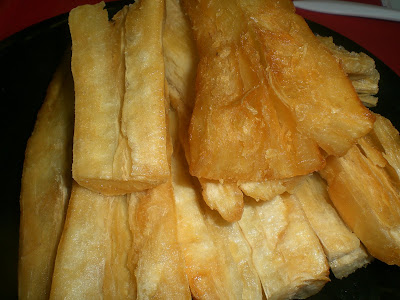Los Angeles, CA 90005
(213) 382-4090
Pollo ala Brasa is your typical hole-in-the-wall Peruvian restaurant with the main draw being the rotisserie chicken and almost its only draw. It has a short menu that consists of several posters featuring the day’s offerings scattered along a couple walls. After I ordered, I noticed I missed a wall and they had fried yucca and chicken soup. So, I went back in line to add both to my order. The workers were very accommodating, yet monotone at the same time. Five minutes later, the order was ready.

Each table comes with a complimentary bottle of Peruvian ketchup or more commonly known as Aji sauce. Its flavor was a mystery to me at one point, but it’s actually an odd combination of lettuce, cilantro, mayo, and jalapenos all blended together.

I've always enjoyed the Peruvian's version of chicken soup. For one, I like the blend of spices and lime flavor. And two, it's always homemade. To me, this is chicken soup. The American version, I would consider more of a broth that hasn't reached the stages of a well composed soup. The downside to the soup was is contained too much chicken fat, rather than lean chicken.

I find that with yuca’s starch content it’s better to deep fry thinner strips. These were very thick chunks that left an undercooked taste due to the size.
I would come back to Pollo ala Brasa when I’m craving a moist chicken, but that’s the only thing I would order. I’ll leave you with a few interesting facts regarding the root vegetable yuca:
- It’s the 3rd largest source of carbohydrates in the world
- The roots are used to make tapioca
- It’s can be poisonous when consumed raw



No comments:
Post a Comment